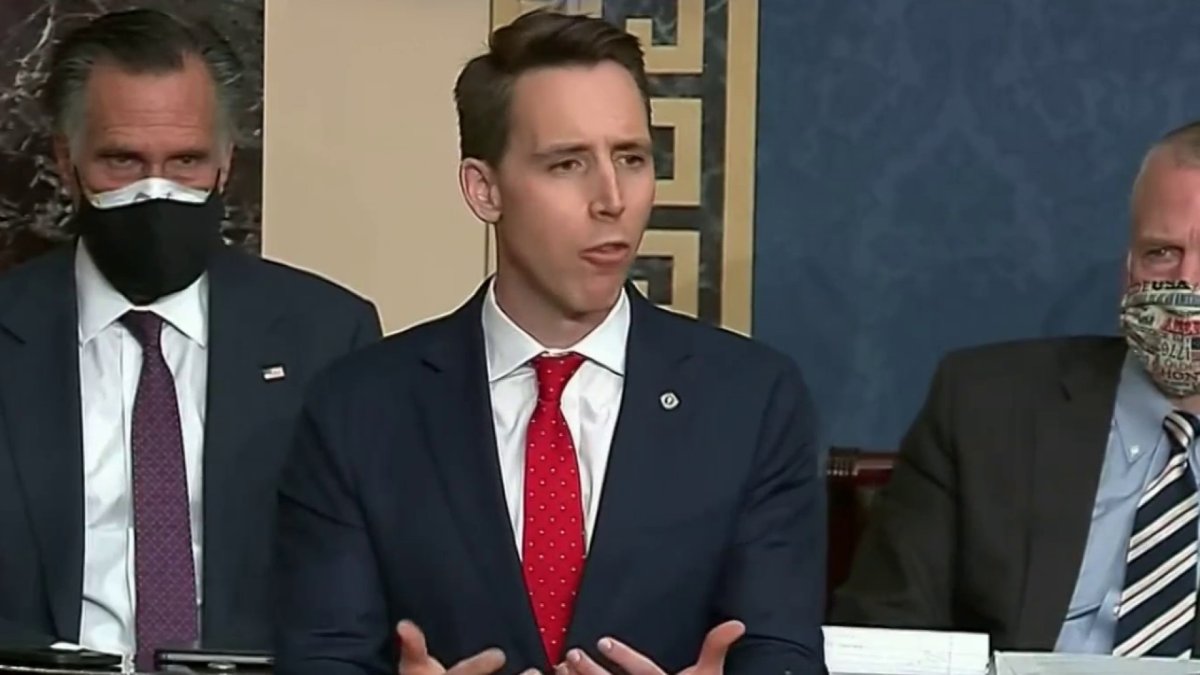
Some Republican lawmakers continue to argue against Joe Biden’s election victory in Pennsylvania, claiming fraud occurred. But how accurate are their arguments? NBC10 investigative reporter Claudia Vargas separates the facts from fiction.
The lawmaker who led the charge against certifying the results of Pennsylvania's 2020 presidential election in Congress on Tuesday recycled an argument that the U.S. Supreme Court declined to hear last November.
The argument that U.S. Sen. Josh Hawley, Republican of Missouri, delivered early Wednesday in the recently-stormed Capitol building during the certification of the Electoral College revolved around the constitutionality of the state's mail-in voting. He did not challenge the state's actual election results, unlike President Donald Trump, who attacked without evidence the vote count for months.
"You have a state Constitution that has been interpreted for over a century to say that there is no mail-in balloting permitted, except for a narrow circumstances that’s also provided in the law," Hawley said.
He argued, in essence, that Pennsylvania's Republican-controlled legislature did not have the right to pass a law in 2019 that allowed universal mail-in voting.
Get top local stories in Philly delivered to you every morning. Sign up for NBC Philadelphia's News Headlines newsletter.
Instead, according to Hawley this week and the lawsuit denied by the U.S. Supreme Court last year, mail-in voting could only be allowed through a constitutional amendment.
Some legal experts disagree with that interpretation and the argument has yet to receive a favorable opinion in court.
U.S. Sen. Bob Casey, Democrat of Pennsylvania, also disagreed in his own speech early Wednesday with Hawley's reading of the Pennsylvania Constitution.
"The law in question, Act 77, was passed in 2019 and implemented without any serious question as to its constitutionality," Casey said. "It was only after the 2020 presidential election when it became clear President-elect Joe Biden won Pennsylvania by a little more than 80,000 votes did some Republican politicians in our state decide to challenge the constitutionality of the law."
He also noted that a common interpretation of the state Constitution's language governing elections does not restrict universal mail-in voting.
"The constitution set a floor, not a ceiling for this type of voting," Casey said.
He is referring to this paragraph in the Constitution:
The Legislature shall, by general law, provide a manner in which, and the time and place at which, qualified electors who may, on the occurrence of any election, be absent from the municipality of their residence, because their duties, occupation or business require them to be elsewhere or who, on the occurrence of any election, are unable to attend at their proper polling places because of illness or physical disability or who will not attend a polling place because of the observance of a religious holiday or who cannot vote because of election day duties, in the case of a county employee, may vote, and for the return and canvass of their votes in the election district in which they respectively reside.
Attorney Ben Geffen of the Public Interest Law Center said he believes Casey's argument is the stronger one when weighed against Hawley's.
"The much stronger argument is that the constitution is setting the floor, not the ceiling and that the legislature has very broad authority," Geffen said.
Congress eventually rejected Hawley's request to throw out Pennsylvania's 20 electoral votes, and certified President-elect Joe Biden's victory last November.


